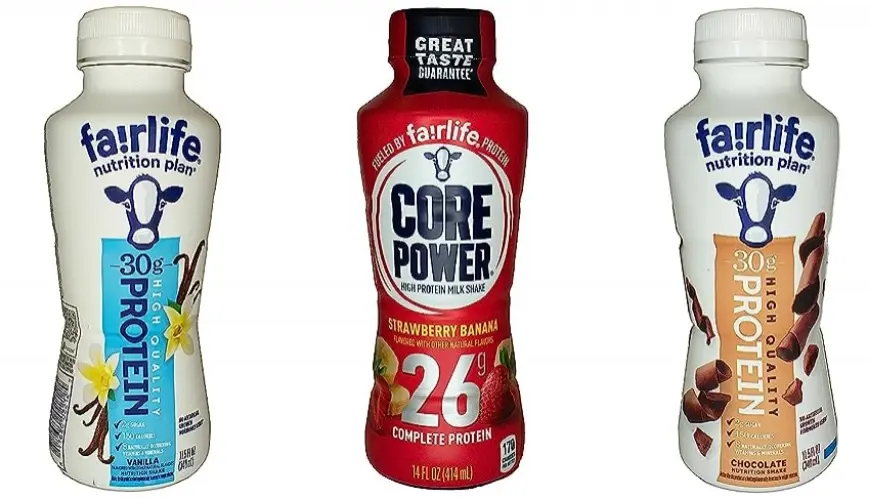In the vast sea of protein supplements, discerning the best choice for your health can be overwhelming. Fairlife protein shakes have carved out a niche, promising enhanced nutrition by offering a higher protein and lower sugar content than conventional milk. Roxana Ehsani, MS, RD, CSSD, LDN, highlights the brand's commitment to an ultra-filtration process that naturally upscales the protein content without additional supplementation.
Comprehensive Nutrition: Beyond Just Protein
Maggie Michalczyk, RDN, gives a nod to Fairlife's macronutrient profile, which doesn't just stop at protein. The shakes also boast a low sugar content, which is a significant consideration for many health-conscious consumers. The inclusion of vitamins and minerals such as calcium and vitamin D is a testament to the brand's holistic approach to nutrition. These nutrients play vital roles in bone health, muscle function, and overall wellness, making Fairlife shakes more than just a protein fix.
Athletes vs. Casual Consumers
While Fairlife's shakes might tick the boxes for casual consumers seeking a protein boost, Ehsani advises that athletes might need to look elsewhere. The body's requirements after strenuous exercise lean heavily towards a balanced intake of proteins and carbohydrates to facilitate recovery and replenish glycogen stores. For the everyday athlete or the weekend warrior, a shake that offers a closer carb-to-protein ratio might be more beneficial.
Understanding the Ingredients
Fairlife's commitment to reducing lactose content and making their shakes accessible to those with lactose intolerance is commendable. However, the choice of sweeteners in their shakes has sparked a debate. While these sweeteners help keep the sugar content low, they have been scrutinized for their potential impact on gut health. Michalczyk points out that while the research is ongoing, it's worth considering the effects these ingredients may have on our microbiome.
The Role of Protein Shakes in a Healthy Diet
Protein shakes like Fairlife's can play a role in muscle maintenance and growth, thanks to their high-quality protein sources. They can also aid in controlling hunger and managing weight by promoting satiety. However, Michalczyk stresses that these shakes should not be the sole source of nutrition. A diet abundant in fruits, vegetables, whole grains, and lean proteins, complemented by regular physical activity, is the cornerstone of a healthy lifestyle.
Moderation and Balance: Key to Utilizing Protein Shakes Effectively
Ehsani and Michalczyk both agree that moderation is key when incorporating protein shakes into your diet. For the non-athlete, a Fairlife shake can be a convenient snack or a post-workout recovery aid. But for those who engage in high-intensity training, a more balanced nutritional approach is required—one that provides ample carbohydrates to fuel recovery.
Integrating Fairlife into Your Diet
Fairlife protein shakes offer a convenient, high-protein, and low-sugar option for those on the go. They can be a smart addition to a balanced diet, particularly for individuals who may struggle to meet their protein requirements through whole foods alone. However, it's essential to maintain a diet that's rich in a variety of nutrients and to engage in regular physical activity. By doing so, you can ensure that protein shakes serve their purpose as a supplement, not a replacement, to a nutritious diet.
In conclusion, while Fairlife protein shakes present a viable option for many, it's crucial to consider individual dietary needs, lifestyle factors, and overall health goals when deciding whether to include them in your diet. As with any nutritional supplement, it's best to consult with a healthcare provider or a dietitian to tailor your intake to your specific needs.




